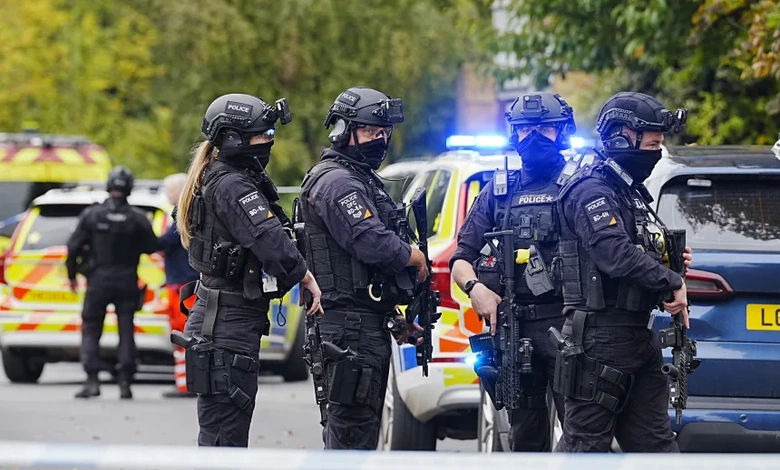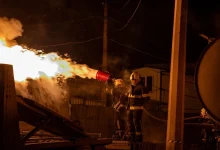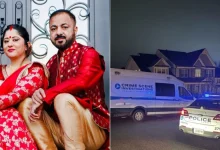Manchester’s Jewish Enclave Grapples with Grief and Fear After Synagogue Bloodshed on Sacred Day

Manchester, England — In the bustling Crumpsall district, the wail of sirens is a familiar urban hum for residents like Chaim Leob. Yet on Thursday morning, the relentless procession of police vehicles, ambulances, and fire engines racing by, accompanied by the thrum of a police helicopter, pierced the usual routine with an ominous urgency.
For Leob, an observant Orthodox Jew, and much of his tight-knit community in northern Manchester, the chaos unfolded in silence. It was Yom Kippur, Judaism’s most solemn observance, when tradition forbids the use of electronics. Unbeknownst to those immersed in prayer, their neighborhood had become a crime scene.
Emergency responders converged on the Heaton Park Hebrew Congregation Synagogue, where a gunman drove a vehicle into a crowd before launching a stabbing rampage that claimed two lives and injured several others. Greater Manchester Police swiftly locked down the area, urging locals to shelter in place. But the directive fell on deaf ears within synagogues, where worshippers remained cut off from the outside world.
Rivka H., a legal secretary and mother of four who frequents the Heaton Park synagogue, sensed trouble from the ceaseless sirens echoing through her nearby home. Unable to check her phone, she rapped on a neighbor’s door for answers. The news hit like a gut punch: two fatalities. “There was so much police around the synagogue, so many sirens — it made me feel sick,” she recounted to CNN, her voice trembling as she hurried through the streets to reassure her grown daughters and former husband. “Hopefully I’ll be able to catch my girls and tell them I’m safe.”
Encounters with distraught acquaintances multiplied the anguish. A tearful stranger halted Rivka, pleading for word of a mutual friend unreachable since dawn. Details emerged piecemeal: the victims were reportedly two adult Jewish men. Rivka’s brother had already checked on her, knowing her routine ties to the targeted site.
This assault has deepened a pervasive sense of vulnerability among Britain’s Jewish population, which numbers fewer than 300,000 in England and Wales per the 2021 census — less than 0.5% of the total. Antisemitic incidents have surged over the past decade, hitting record highs in 2024, according to the Community Security Trust, a nonprofit dedicated to safeguarding Jewish communities from extremism and hate crimes.
Manchester hosts the UK’s second-largest Jewish population, around 30,000 strong, concentrated in these northern suburbs. Crumpsall embodies communal solidarity: a local bakery operates on an honor system after hours, and support networks span generations. Yet Leob, whose family has roots here for nearly a century, hears whispers of exodus to Israel. “People say all the time that our time here is finished,” he told CNN. He faults the UK government’s recent recognition of a Palestinian state — a move he deems a “reward for terrorism” — for fostering hostility. Still, relocation isn’t on his horizon. “I think Israel needs the diaspora as much as the diaspora needs Israel,” he said. “If there was no diaspora, there’d be no one to support Israel from the outside. We can’t just all run off to Israel.”
The synagogue perches on the fringe of this Orthodox enclave, amid a diverse mosaic of Muslims, Christians, and Jews. A Palestinian flag flutters from a window on a street lined with yellow ribbons honoring Israeli hostages held by Hamas in Gaza. Ashfaq Malik, a British Pakistani Muslim born in Manchester and living adjacent to the site, described seamless neighborly bonds. “We never had any problems. We talk to each other, we know each other,” he said. His local mosque issued a safety alert that morning, reflecting routine dialogue between its imam and area rabbis.
At a nearby synagogue, security fell to Ans Ahmad, a Muslim guard from Manchester. Unfazed by the role in a Jewish space, he condemned the violence unequivocally: “Anyone who kills innocent people is a bad guy, whether it’s a Muslim or anyone.” The morning’s terror was unprecedented, he added.
As dusk fell, Yom Kippur’s veil of disconnection began to lift. The holiday demands fasting and nonstop services, drawing even lapsed observers to synagogues sans devices. Many in Crumpsall learned of the horror only then, querying if the perpetrator — whom police confirmed dead — posed further threat.
Rivka fretted over her mother holidaying in Israel, bracing for the time-zone lag in anxious calls. “Tonight, after the restrictions are lifted, I’ll get on my phone and call her,” she said. “But it will be later for me, so then there’s a couple of hours where it will be out for my mum in Israel, but not here. What can you do?”




